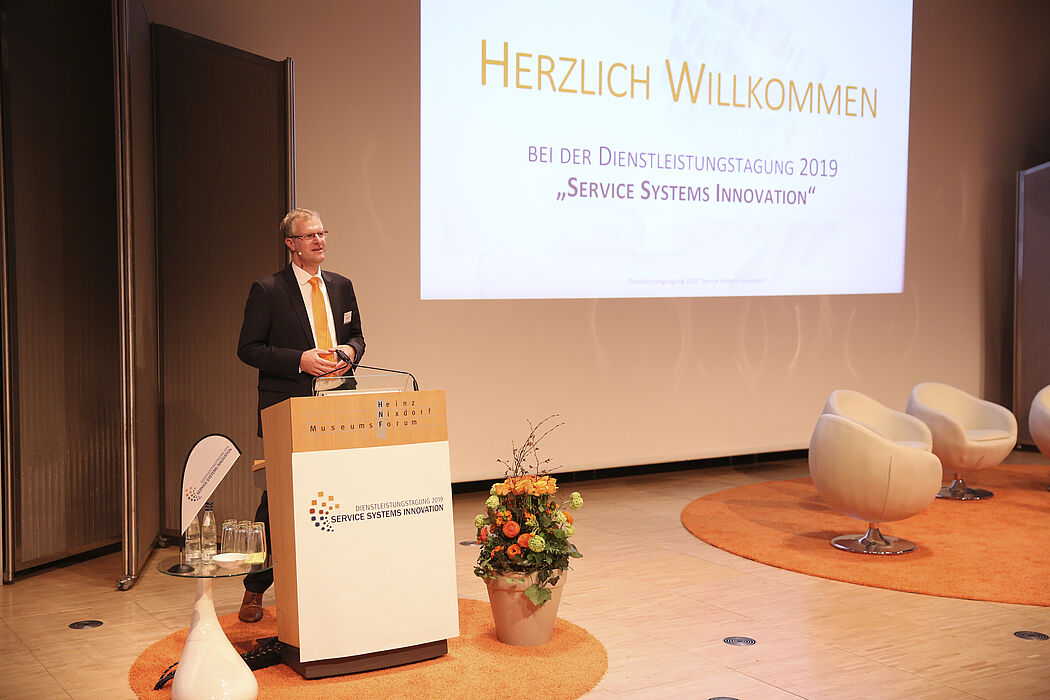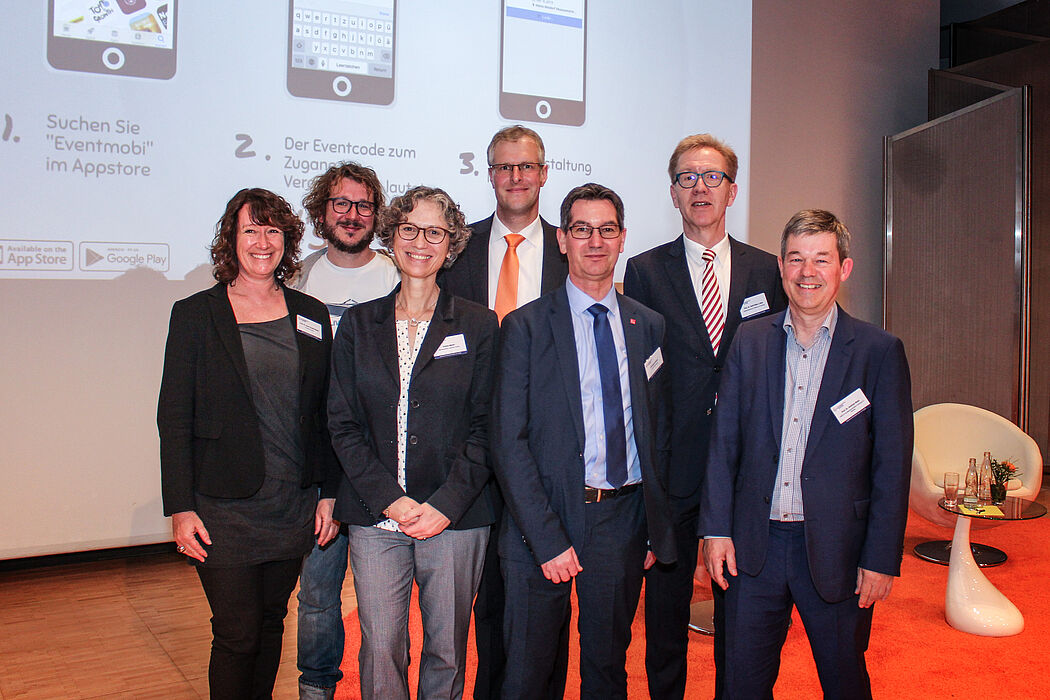What can services contribute to the digital transformation of economy and society in the future?
This question was the focus for more than 300 participants who attended the "Service Systems Innovation" service conference 2019 on 8th and 9th April in the Heinz Nixdorf MuseumsForum in Paderborn. "According to the Federal Statistical Office, last year about three-quarters of all employees in Germany worked in the service sector. Services are a core discipline of digital transformation," emphasized Prof. Dr. Daniel Beverungen, professor of business information systems at the University of Paderborn, at the opening ceremony. Prof. Dr. Caren Sureth-Sloane, Dean of the Faculty of Economics in Paderborn, highlighted how important such a conference is for research in the areas of services and smart services: "Within the faculty, we have committed ourselves to interdisciplinarity in all areas. Our courses are designed between science, teaching and practice and allow students to specialise in smart services, which is very important to us. But we can only do top-level research if we offer conferences like these."
Man and machine in the digital age
On his welcoming address, Prof. Dr. Wolf-Dieter Lukas of the Federal Ministry of Education and Research took up the fact that there is a great potential for innovation in Germany: "When it comes to innovation ability, Germany is always among the first in a worldwide comparison. The second truth, however, is that in the future we will have to bring in even more dynamism in the area of sales growth. It is precisely this dynamism that we will need for value creation in the service sector. But what matters most is the advantage that people in Germany can derive from this."
With a view to developments in the field of Artificial Intelligence (AI), Andrea Martin, Chief Technology Officer at IBM Germany, Austria and Switzerland, focused on the role of humans in her keynote speech: "At IBM, we are looking for AI solutions to enhance the human brain. For us, it is very important that people continue to be the focus. That's why we prefer the term augmented intelligence rather than artificial intelligence." Christoph Schmitz, secretary of the ver.di federal executive board and head of the general policy department of the trade union, followed up on this idea by emphasising the value of human interaction: "The quality of services arises in direct contact with people. It must not be taken for granted that working with machines is paid better than working with people. We have to consider social and emotional aspects in interaction work."
In a joint keynote speech with Christoph Bornschein, founder and CEO of the Agency for Digital Business TLGG, Prof. Dr. Andreas Boes, board member at the Munich Institute for Social Science Research, clarified: "What belongs together is growing together in the information economy. Industry and services must reinvent themselves. We ask about the challenges and conditions for success for companies and society and how development can be shaped in the interests of people." According to Bornschein, European companies must find and go their own way. "One wish would be to integrate the European idea into products and services. This means creating a value-based competitive situation".
The subsequent impulse speech, interactive discussion groups and pitches were used by the conference participants to further deepen topics such as Smart Service Engineering, digitalisation as well as opportunities and challenges in the service industry. In addition, researchers presented project results and developed services in an exhibition area.



